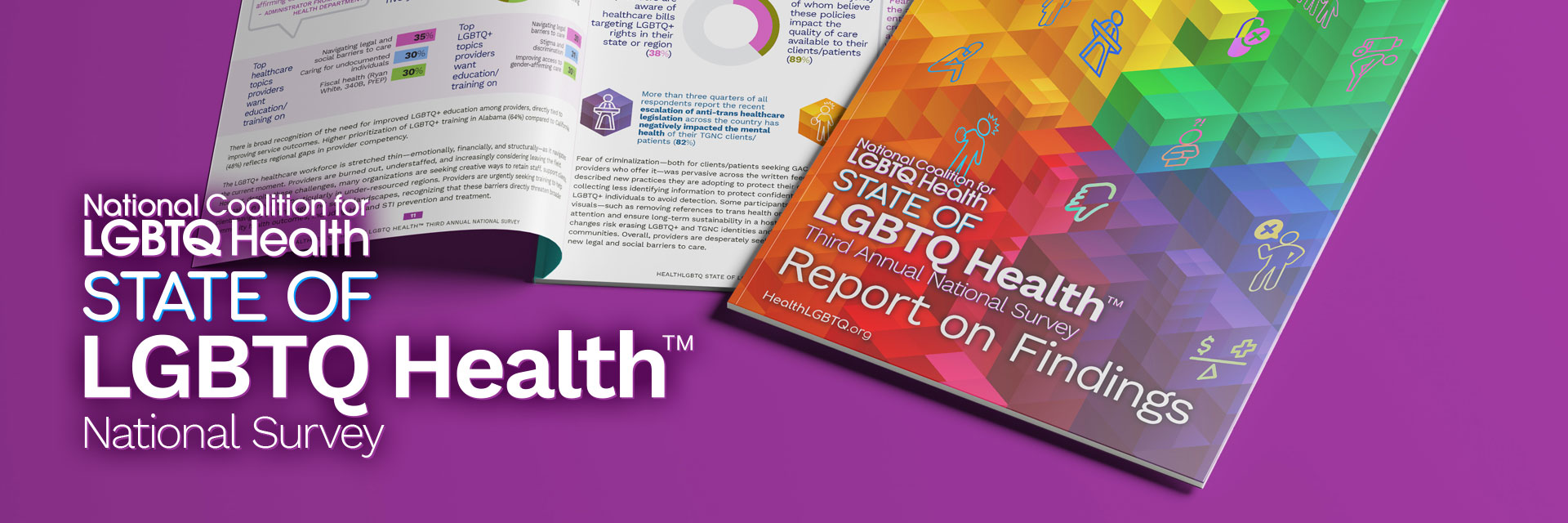
The National Coalition for LGBTQ Health administered the Third Annual State of LGBTQ Health™ National Survey to assess the current landscape of LGBTQ+ healthcare amid a rapidly evolving political and policy environment.
The goal of this survey was to gain insight into patient and provider pathways that optimize safety and care for the LGBTQ+ community in order to inform the development of supportive advocacy, education, research, and training activities for the workforce. Survey topics included barriers and facilitators to LGBTQ+ healthcare, the impact of recent federal changes on organizations serving LGBTQ+ communities, policies that improve LGBTQ+ health, organizational culture and policies, gender-affirming care, and workforce wellness, morale, and burnout.
LGBTQ+ people in the United States and the healthcare providers who serve them are facing unprecedented challenges amid a rapidly shifting and unpredictable landscape.
- Fear of stigma and deep-seated institutional distrust
remain major barriers to care for LGBTQ+ communities, undermining access and eroding confidence in the health system and government. - Widespread threats to gender-affirming care
are fueling fear among patients, as providers brace for further reduction in access due to weakening policy protections and looming cuts to Medicare and Medicaid. - An escalating mental health crisis
is overwhelming LGBTQ+ communities, with high rates of depression, anxiety, and suicidal ideation compounded by a critical shortage of behavioral health providers. - Increasing emotional exhaustion among LGBTQ+ service providers
signals a workforce under significant strain and threatens the stability and sustainability of care for marginalized communities. - The political environment is undermining essential LGBTQ+ healthcare
with providers reporting increased pressure, policy-driven care restrictions, and growing concern over the long-term impact on workforce retention and patient well-being.
